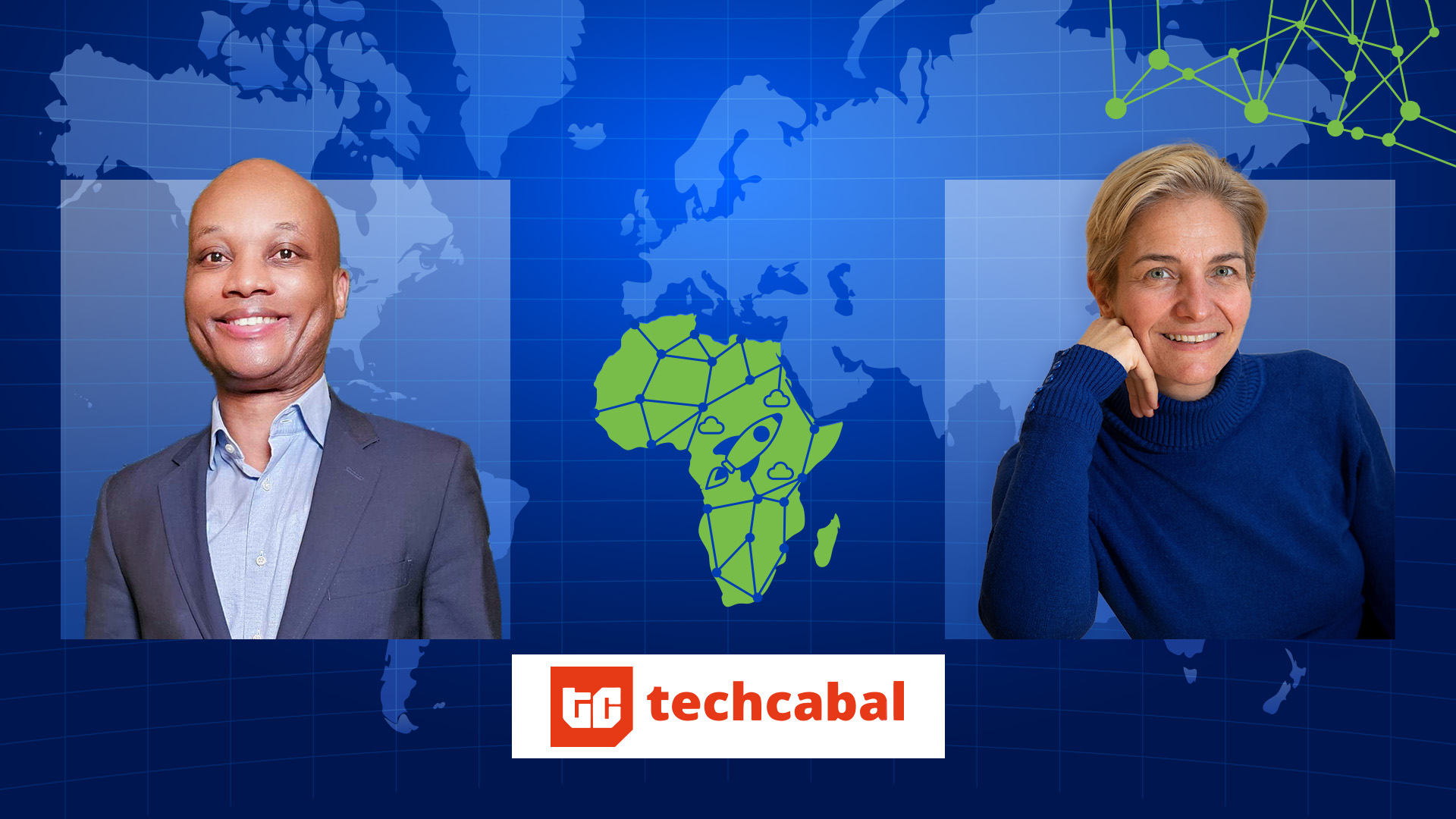Noel K. Tshiani is the founder of Congo Business Network. In this exclusive interview for TechCabal, he discusses with Isadora Bigourdan, acting CEO at Digital Africa, whose mission is to equip Africa’s tech entrepreneurs with the capabilities to design and scale groundbreaking innovations for the real economy. The French Development Agency (AFD) was the driving force behind the creation of Digital Africa, and continues to be a major partner. As a super-aggregator of data, capacities, and opportunities, it has a unique ability to intensify financing, training, support, and promotional activities for entrepreneurs across the continent. Bigourdan has over 20 years’ experience in business structuring and financing, working as a lawyer, investor, business angel, and mentor. For the past 10 years, she has focused on Africa, where she has helped tech champions access funding and opportunities to grow their ventures and go global. In this interview, she answers questions on the role of Digital Africa in supporting Africa’s tech ecosystem, the challenges facing African entrepreneurs, and the opportunities for African startups in the global market.
What do you see in the future of the tech ecosystem in Africa?
From my 10 years of experience on the African continent, I have witnessed that technology appropriation is notably fast on the continent, compared to Europe, for example, and that people are increasingly paying attention to the tech ecosystem. A remarkable feature is that all startups are using technology to improve lives and facilitate access to essential services. However, there are disparities between countries in terms of technology advancement, training, and public policies to encourage tech entrepreneurship. In addition, only five countries attract 80% of the investment in Africa. Although financing is largely foreign to the African continent, the players involved in this field are becoming more professional. However, they often have limited knowledge of African realities.
I am very optimistic about the role and place of African tech champions in the international digital scene, as more and more players are getting serious about it. In this regard, it is crucial that large African companies such as traditional banks and large corporations take into account the importance of technology as a driver for improving living conditions on the continent. Literacy plays a crucial role in driving the continent’s digital transformation at scale.
Over the past decade, I have seen a real acceleration in this area, as evidenced by the proliferation of startups. However, I am concerned that there is still a strong concentration in certain countries and ecosystems, probably due to the strong presence of foreign investors. I am not saying that this is bad in itself, but it does not really allow the development of a specific African approach.
What are your thoughts on the state of tech in French-speaking Africa? Can you talk about the key trends in this region, and how Digital Africa is contributing to the success of startups?
What I find interesting in French-speaking countries is that there has been a fairly rapid ecosystem approach, whether in Tunisia, Senegal, Côte d’Ivoire, Rwanda, Niger, or Gabon. That is to say that all the players in the ecosystem are mobilised to help startups emerge. So it’s not a purely private sector approach. The startup acts in Tunisia and Senegal are good examples of how public and private sectors can work together to support entrepreneurship. The startup acts provide co-built legal frameworks that make it easier for startups to operate, and they also include funding for public-private partnerships that support startups. These partnerships have helped to create a more inclusive environment for entrepreneurship and have resulted in the growth of a number of successful startups in both countries.
In Nigeria and Kenya, private initiatives are more common, and they are often financed by foreign investors. However, these projects often lack the necessary regulatory and ecosystem frameworks to support their success.
Our method is based on a conviction: for the tech and innovation ecosystem to function optimally, it is essential to mobilise all players involved. We are convinced that effective cooperation between institutions, funding sources, skill experts, research institutions, and startups is essential to achieve this goal. We believe everyone has a role to play in creating a favourable environment for innovation and business growth. After all, Silicon Valley is a prime example of how billions of dollars in investment can help to nurture private initiative and innovation!
What are some of the challenges tech startups face in French-speaking Africa that those based in Nigeria, Egypt, Kenya, or South Africa don’t have to experience?
In French-speaking Africa, access to financing is limited due to a lack of risk culture, which can be a major obstacle for investors wishing to establish themselves in this region. In addition, cultural differences and perceptions of entrepreneurship represent a major challenge for local players. Education is still a roadblock to unlocking entrepreneurship as a vocation. For example, social success is often associated with a job in civil service, rather than starting a business. In addition, the availability of financing is limited due to a lack of risk culture, which can be a barrier for investors venturing into this region.
In English-speaking Africa, business angel networks are a key source of financing for startups. These networks bring together wealthy individuals who are willing to invest in early-stage businesses. The networks provide entrepreneurs with access to capital, as well as mentorship and support. This helps to create a vibrant entrepreneurial ecosystem in English-speaking Africa. Education and training are also challenges in French-speaking Africa, where the teaching of entrepreneurial skills is often less developed than in other parts of the continent, such as Kenya or Rwanda, where learning to code is now mandatory in elementary school.
What are some of the most exciting accomplishments or projects that Digital Africa has undertaken recently, and how have they impacted the lives of people in specific cities in Africa?
At Digital Africa, we are very proud to serve our users by providing them access to skills, data, fundings, as well as speak for them to advocate their needs to institutions. Through our 15 connectors on the ground for example, who honoured us with their trust, we make sure that we develop the right tools with the efficient method to ease the emergence of tech ventures in Africa.
Because access to the right talent is still very difficult for startups in Africa, we are delighted with the success of our Talent 4 Startups programme, which attracted over 10,300 applications from young people in Africa. We were able to train 294 students, in collaboration with nine partner training organisations in 10 different countries. We make sure, through job fairs and speed pitching, that these talents can be connected to startups looking for them. This provides them with the skills to become successful entrepreneurs or join existing technology companies, creating employment opportunities for themselves and others. Based on this success, we are currently preparing the second edition of this programme and are aiming to deploy 1,000 scholarships throughout Africa, and reinforce the job placement strategy.
In addition, we are proud of our safe investment facility programme, named Fuzé, which provides selected startups with services and resources to accelerate their growth. Startups receive funding, personalised mentoring, and access to a network of partners and investors, enabling them to grow quickly. As of the soft launch last September, 800 startups have applied, a quarter of which were eligible, and 14 got the final approval. As we really value a partnership approach with Fuzé, with co-investment as much as possible, we are delighted to announce that Neolean, a company we funded at the end of last year, has just received funding from the General Delegation for Women and Youth Rapid Entrepreneurship (DER) in Senegal, in continuation with our Fuzé ticket. This success is a testament to the positive impact we are creating in the continent by supporting growth-stage companies and fostering entrepreneurship.
How does Digital Africa measure success for a startup, both in terms of its impact on local communities and its overall business performance?
We take a data-driven approach and only back companies that use technology to serve the real economy, which is our first selection filter. We don’t accelerate technology without clear goals in mind. We invest in startups that are working to achieve societal ambitions. Together with partners, we are developing a data infrastructure that will allow us to know real users of the startups we fund and measure their impact on improving people’s lives.
We look at performance metrics not just from a financial perspective, but, more importantly, from a social perspective: who am I serving, why am I serving them, and how am I getting my prices right? These questions are at the heart of our startup selection process. These indicators are in line with Digital Africa’s values, as we seek to address the specific needs of entrepreneurs. Our purpose is to foster inclusive development through digital innovations “made in Africa”. We monitor the performance of the startups we partner with to ensure they are aligned with our mission. We strongly believe that tech solutions from Africa are and will be a large source of inspiration to solve global issues our volatile, uncertain, complex, and ambiguous world is bringing us!
What do you think about our stories? Tell us how you feel by taking this quick 3-minute survey.




















